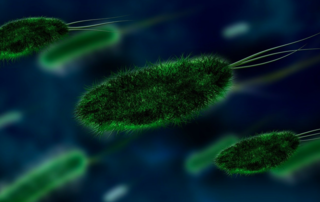Education
Microbes and Mood
Learning more about the microbiome means there is always more to know.
Posted August 30, 2020

The connections between the gut and the brain become more and more understood over time. As with most biological systems, the more we know, the more we realize that we don’t know much at all. Each discovery lends us a new horizon to approach, catalogue, and understand.
To review, gut microbiota composition—yes, the beasties in the stomach, small intestine, and to a much larger (by many magnitudes) extent the colon—could affect the brain in a number of different ways. First off, an irritated gut is an irritated body, increasing the permeability of the gut barrier, and increasing systemic inflammation and immune responses. These activities in turn activate the “fight or flight” response of our hypothalamic-pituitary-adrenal (HPA) hormonal axis, changing up which of our neurotransmitters are expressed where, and perhaps leaving us more vulnerable to emotional and other stressors, tipping the balance of our brain response in a depressed or anxious way rather than a resilient way.
In addition, the gut microbiota can influence the body and brain via the enteric nervous system, all the nerve endings in the gut with a direct line to the brain via the vagus nerve. The gut microbiota can influence how food is digested via influences of what genes are expressed in the liver. Levels of inflammation in the body also influence both the gut-blood barrier and the blood-brain barrier. Brain inflammation and systemic inflammation is seen in both chronic and acute depression and can help us both understand the physiology of the disorder, and help inform future treatments.
The human gut has two very dominant families (biologists use the more specific term phyla) of bacteria, which account for around 75% of the bacteria in our gut Bacteriodetes and Frimicutes. Gut microbiota composition is influenced by many factors, including your birth, location, age, medication, and diet.
In animal models and human studies, decreases in the diversity and changes in the population of the gut microbiota in major depressive disorder have even observed several times. These findings to some extent overlap those found in liver disease (hepatic encephalopathy) and autism spectrum disorders.
What we haven’t focused on much is how the brain can affect the gut. The arrow runs both ways. The brain can modulate gut motility, secretion of acid, the acidity of the gut, mucus production, and biofilm handling. Gut-brain interactions are definitely a two-way street.

The gut microbiome seems more like a rosetta stone, a key to a complex language to be translated so we can more fully understand our own immune system and our brain. A recent preprint finds differences in the microbiome between healthy controls and those with major depressive disorder and generalized anxiety disorder.
If we translate this language, it’s possible we could find treatments to help decrease inflammation and improve resiliency to emotional and environmental stressors. Sounds too good to be true? Only time and research will tell.
Copyright Emily Deans, M.D.


